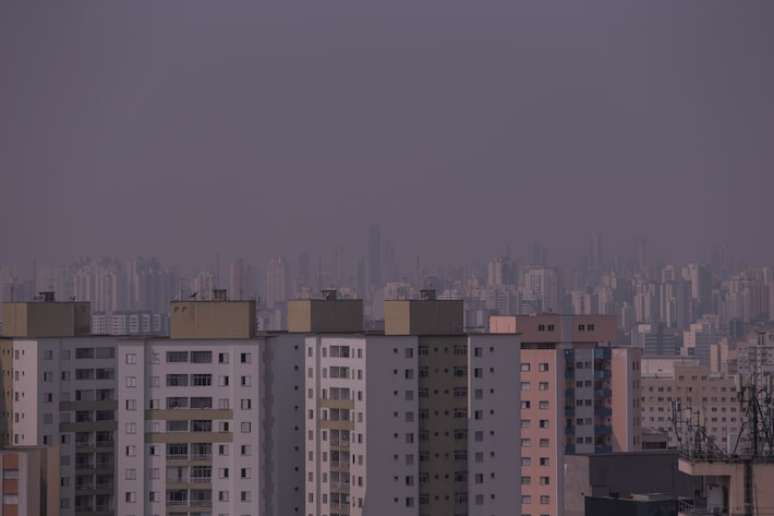The Ministry intends to encourage states and municipalities to install facilities due to the effects of the dry climate. The National Force will intensify visits to the affected areas
THE smoke from fires and the pollution on the cities, a scenario favored by the dry climate, has caused an overload of care in health units, as seen in several locations in the interior of São Paulo. The Minister of Health, Nisia Trindadesaid Wednesday 11, that the government will encourage states and municipalities to set up hydration tents with drinking water and misting facilities.
THE Ministry of Health announced measures and guidelines to reduce health damage in light of the spread of fires in Brazil. The scenario occurs in connection with the greatest drought experienced by Brazil in the last 70 years. The situation is expected to worsen in the coming months.
The minister specified that National Health Force will intensify its visits to the most affected areas to strengthen emergency assistance. Although this work was already underway, it will be expanded due to the worsening situation.
Nísia highlighted on Wednesday the urgency of the situation, where the fires that affect 60% of the territory are added to the drought and intense heat of an atypical period. “One of the consequences of this has been an increase in the search for care in public health units, with allergic crises, respiratory diseases, as well as common symptoms of exposure to this type of problem, such as nausea, vomiting and headaches,” she highlighted.
The president of the National Council of Municipal Health Secretariats (Conasems), Hisham Mohamad Hamida, stressed that health units are overloaded, especially in cities such as Araçatuba, Ribeirão Preto, São José do Rio Preto, in the interior of São Paulo, as well as in the capital.
The minister also took the opportunity to highlight the risks of cardiovascular problems that can be caused in this scenario, warning of symptoms such as severe headaches, chest pain and abdominal pain. A recent study, cited in State ReportThey showed that individuals exposed to pollution in large cities had more cardiac fibrosis, an indicator of heart disease.
A guide for local health workers will also be launched with guidance on providing assistance in the face of the climate emergency.
“The city councils must transmit information on air quality and temperature, as well as the possible risks that these variables can generate, especially for risk groups, such as the elderly and children, who often do not notice the symptoms of dehydration so easily”, Nísia highlighted.
- Among the recommendations issued by the Ministry, drinking water frequently and keeping the environment as humid as possible, whether through humidifiers, buckets of water or wet towels, is the main one.
- Additionally, the agency stressed that outdoor physical activities should be avoided, as well as proximity to fire outbreaks.
- For people with comorbidities and greater vulnerability, such as pregnant women, the elderly and children, work with health teams must be even more intense, paying particular attention to cases of nausea, vomiting, shortness of breath, dizziness, mental confusion and severe pain in the head, chest or abdomen.
The minister also took the opportunity to mention the damage that the moment could cause mental health. “These days, in São Paulo, a city that also experiences high levels of pollution, day has turned into night. It’s not just about the smoke particles, the pollution and the worsening drought. There is a great emotional shock involved in this,” stressed the Health Councilor, emphasizing the commitment of the Mental Health Department for MS in welcoming people with this type of problem.
Source: Terra
Ben Stock is a lifestyle journalist and author at Gossipify. He writes about topics such as health, wellness, travel, food and home decor. He provides practical advice and inspiration to improve well-being, keeps readers up to date with latest lifestyle news and trends, known for his engaging writing style, in-depth analysis and unique perspectives.









